Writing: Expanded Noun Phrases (ENPs)
Over the next two weeks, in Writing, we will be exploring, planning and writing a narrative. Yesterday, the children looked at and created Expanded Noun Phrases (ENPs) that they could use in their piece of writing.
An ENP is made up of a ‘determiner adjective, adjective noun’ or ‘determiner adjective noun’. Here are a few we made:
- the smoky orange sky
- the green-eyed figure
- the glistening bronze wheel
- a magnificent, gargantuan hot air balloon
- an ancient, abnormal dragon
- a menacing, mechanical sky-ship
- several delicate, peach clouds
Help at home: Take a look at ENPs on BBC bitesize or create your own ENPs for the picture below.

Topic: Drop Down Morning.
Year 6 had a drop down morning where they recapped learning from previous year groups. The focussed on the Romans (History), Natural Disasters (Geography) and Computing.
In History, Year 6 looked at the positive and negative impacts the Roman invasion had on Britain.
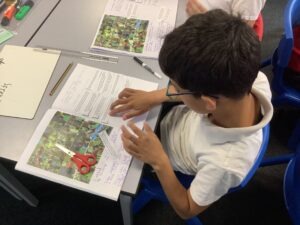
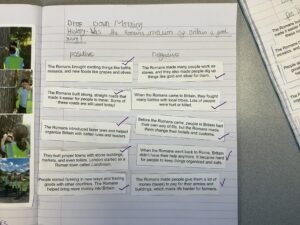
We then had a class debate – for or against the Roman invasion. This allowed the children to practise their oracy skills. They projected their voices, used specific vocabulary to the topic and changed their tone.
In Geography, the children matched the topic’s key vocabulary to its definition.
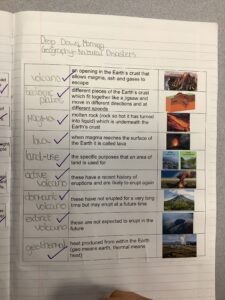
After, Year 6 became cops and robbers. They needed to write down everything they knew about the vocabulary and then steal as much information off of their peers as they could.
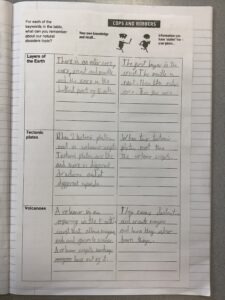
In Computing, we revisited our learning from Year 3/4. The children were able create their own code to program a sprite to follow their commands.
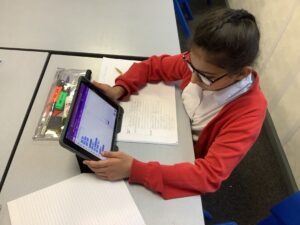
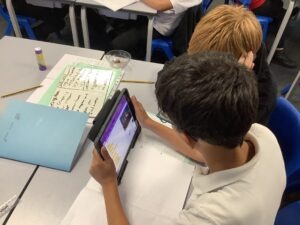
Black History Month
This morning, Year 6 joined a zoom about Black History Month. In the UK, Black History Month happens every October. It provides an opportunity for people to understand, share and celebrate the history of Black heritage and culture and its impact today.
This year the theme is ‘Standing Firm in Power and Pride’. This means standing strong, being proud of who you are and celebrating the power of Black people’s stories and achievements.
Help at home: Research Rosa Parks and Martin Luther King. Can you find 5 facts about each of these influential people? Is there any one else you can find out about?
National Poetry Day!
Last week, the children were given the task – as homework – to learn a poem off by heart ready for today – national poetry day! We had an assembly to celebrate. Each class performed a poem. Year 6 performed ‘Daffodils (I wandered lonely as a cloud)’ by William Wordsworth and ‘The Spider and the Fly’ by Mary Howitt.
This website tells you more about the day and why it is celebrated: https://forwardartsfoundation.org/national-poetry-day/
Help at home: Explore the website above. Can you find out 3 things you didn’t know before?
Living and Learning: I respect others.
In our Living and Learning lesson this week, Year 6 learnt about discrimination and the protected characteristics.
Discrimination is defined as ‘the unfair treatment of people because of who they are or because they have a certain characteristic(s)’. We discussed examples and the impact of discrimination.
The Equality Act 2010 protects people from discrimination based on protected characteristics.
We remember the protected characteristics by using the mnemonic:
DR S GRAMPS
Disability
Race
Sex
Gender reassignment
Religion or beliefs
Age
Marriage or civil partnership
Pregnancy and/or maternity leave
Sexual orientation
Help at home: Name the protected characteristics without looking. Who makes sure these characteristics are protected?
Geography: Fantastic Fieldwork!
Today, Year 6 ventured to Moortown Park – an urban green space – to conduct their Geography fieldwork. The children were trying to measure carbon stores in the locality. Carbon stores are known as ‘places where carbon is stored in the environment’. To calculate this, they measured the girth (the distance around the outside of something thick) of different trees. They did this by sampling: a way of collecting fieldwork data without measuring everything.
This coming week, we will use this information to work out how much carbon is stored in the trees.
Have a look at us being geographers:
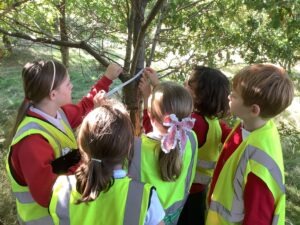
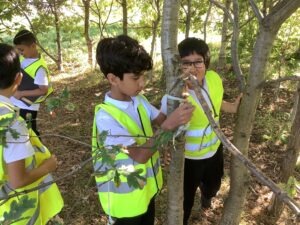
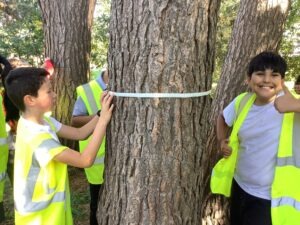
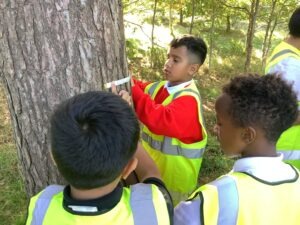
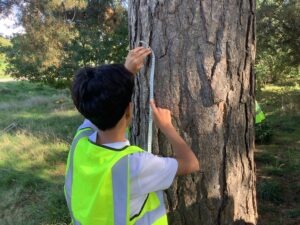
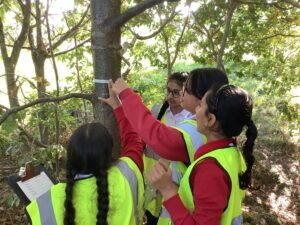
Help at home: To link with our writing skills, spot the parenthesis used in this post!
Reading Records
At Moortown, reading records help us to celebrate our love for reading. As a reminder, here is the key information you and your child need to know:
- Each time one of the children signs out a new book to read from the library, they can make note of these in their reading record and rate them out of 5 stars.
- Every Friday, I chose an activity for the whole class to complete in their reading record. More information on these activities is found inside the record.
- The children bring in these reading records every Friday for our Book Club lesson where we’ll discuss their books and develop their love of reading.
- Please accompany your child’s weekly activity with a short comment sharing with us the reading your child has been doing at home.
Take a look at some fabulous activities Year 6 have completed so far:
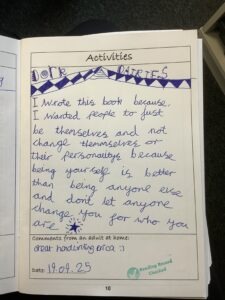
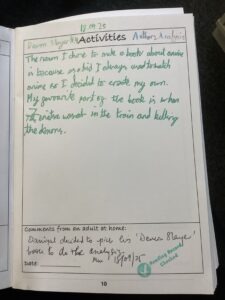
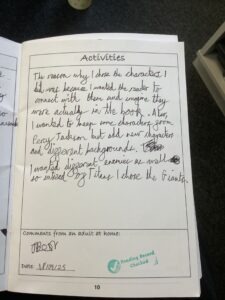
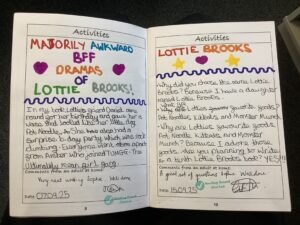
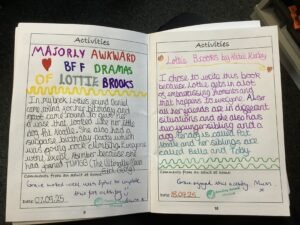
Reading: The Spider and the Fly
This week – in Reading – we have been looking at the poem ‘The Spider and the Fly’ by Mary Howitt. We have looked at a range of different skills but in today’s lesson the children used their retrieval skills to draw and label the characters and setting.
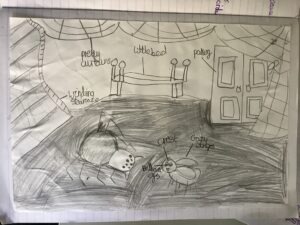
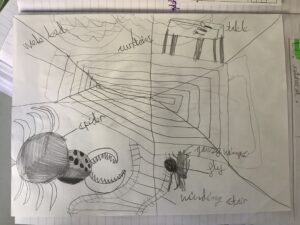
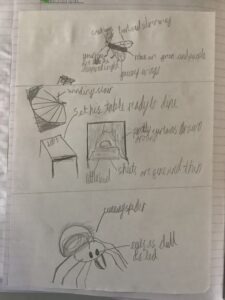
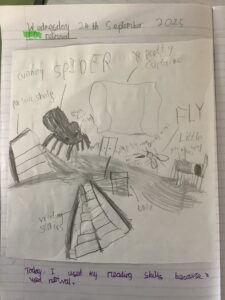
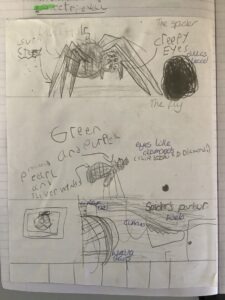
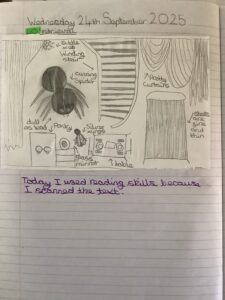
Help at home: Find out about the poet Mary Howitt. Are there any more poems you like of hers?
Leeds Rhinos play offs
PLAY OFF ACTION RETURNS TO AMT HEADINGLEY
Following the conclusion of the regular season Leeds Rhinos will take on St Helens in a mouth-watering elimination play off at AMT Headingley Stadium on Saturday 27 September 2025, kicking off at 8pm.
Tickets are on sale now at Leeds Rhinos – Online ticket sales
We hope that you will join us for what promises to be a fantastic occasion as we aim to get within 80 minutes of the Grand Final at Old Trafford.
Further info can be found here Play Off Eliminator tickets on sale now

Reading: Inference
This week in Reading we have been practising the skill of inferring. To infer is to be a “reading detective” and use clues from a text along with what you already know, to figure out something that isn’t said directly. It’s like filling in the blanks by making a smart guess based on the evidence.
In today’s lesson, the children read a diary entry from a survivor of an avalanche. The put themselves in the shoes of the character and created a TV interview.
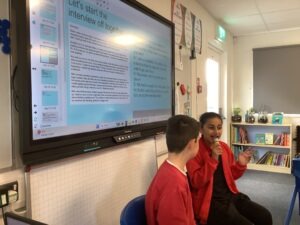
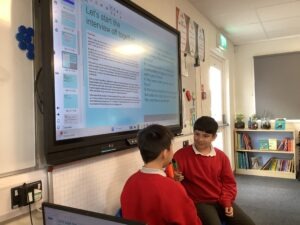
Help at home: Why not create another TV interview for a character in a book from home?